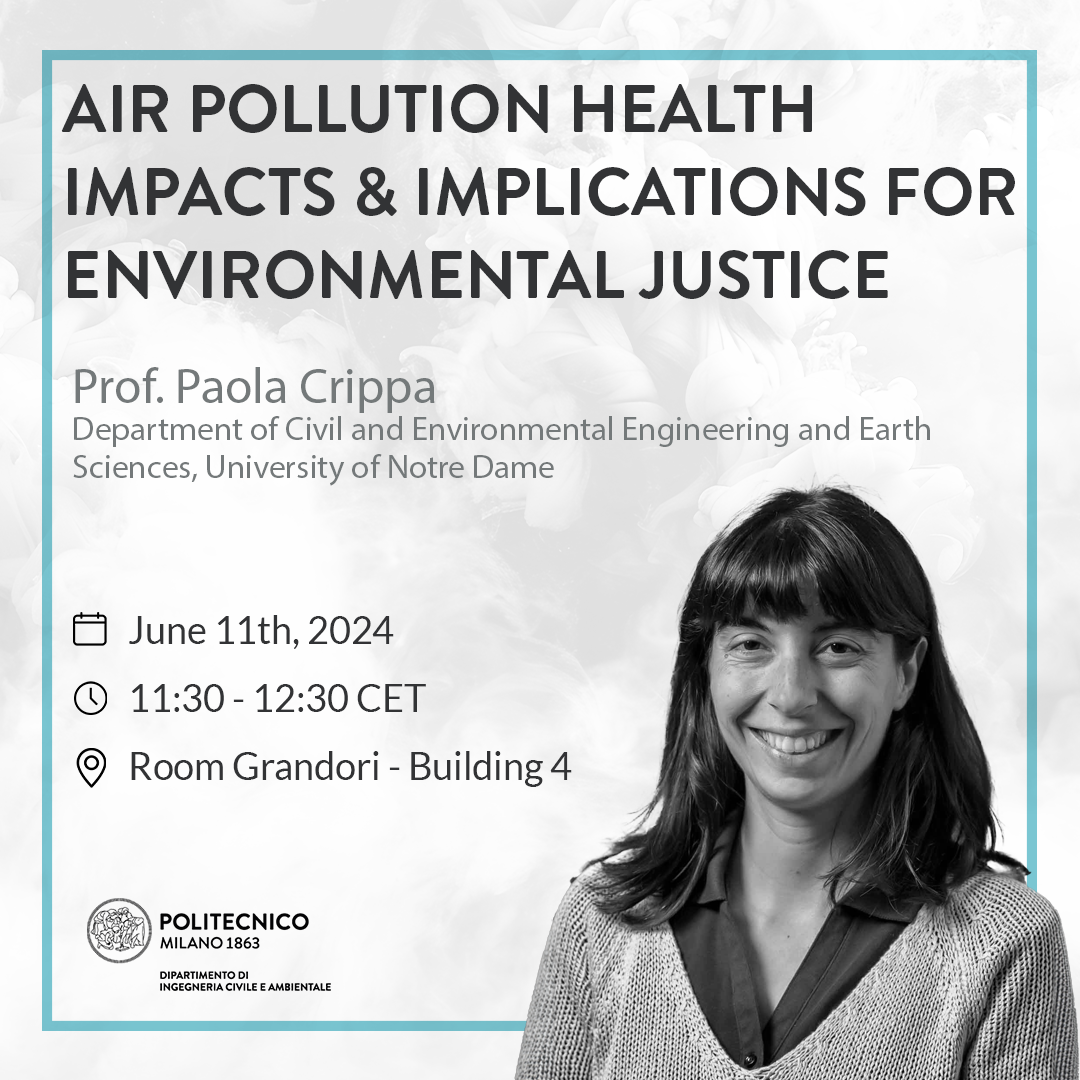
- This event has passed.
Air pollution health impacts & implications for environmental justice
11 June 2024 @ 11:30 - 13:30

On June 11th at 11:30 in Grandori Room (Building 4, piazza Leonardo da Vinci 32) a seminar titled: “Air pollution health impacts & implications for environmental justice“, will be held by Prof. Paola Crippa (Assistant Professor in the Department of Civil and Environmental Engineering and Earth Sciences at the University of Notre Dame).
It will also be possible to view the seminar through the following link.
Abstract
Implementing effective policy to protect human health from the adverse effects of air pollution, such as premature mortality, requires reducing the uncertainty in health outcomes models. The main limitation of traditional uncertainty assessments is considering the pollutants fields (e.g., particulate matter finer than 2.5µm, PM2.5) from air quality models as deterministic, while using the uncertainty in exposure-response functions to estimate confidence intervals in the mortality estimates. However, PM2.5 fields from air quality models are far from being perfectly known. To overcome this limitation, I will illustrate a data assimilation framework that incorporates ground observations from air quality networks to (i) improve the reliability of the PM2.5 concentrations, and to (ii) calculate the spatially-explicit variance of the PM2.5. I will discuss how the uncertainty from exposure-response functions and PM2.5 fields can be combined to estimate the overall uncertainty in mortality estimates and show that the associated confidence intervals are much wider than previously reported. I will illustrate such methodology on two case studies, the first one focused on estimating recent trends of premature mortality burden in China and the second one on computing health benefits related to COVID-19 lockdowns during 2020 in China and Europe. In the second part of this talk, I will present a novel method to reduce mortality uncertainty by varying the amount of health and/or pollution data and employing information yield curves to identify which variables more effectively reduce uncertainty when increasing information. I will apply this method to a real case study for short-term PM2.5 mortality in North Carolina. I will also consider the environmental justice implications of increased information in the assessment, as both pollution and epidemiology data tend to be scarcer for communities in rural areas and/or of low socio-economic status.
Speaker’s bio
Paola Crippa is an Assistant Professor in the Department of Civil and Environmental Engineering and Earth Sciences at the University of Notre Dame. Among her recognitions, in 2015 she was awarded the L’Oréal-UNESCO UK and Ireland Fellowship For Women In Science to investigate the societal impacts of wildfires in South-East Asia and in 2023 the NSF CAREER award on multiscale model simulations. Her research focuses on investigating the spatio-temporal variability of atmospheric aerosols and associated impacts on human health and climate by using high resolution numerical models, as well as on coupled meso- to micro-scale simulations for a variety of engineering applications in the atmospheric boundary layer.
